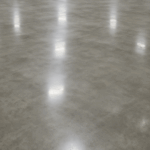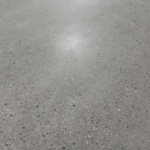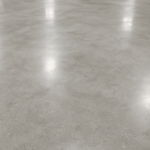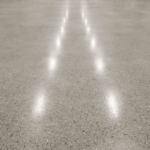Industrial floor
- Home
- Industrial floor
Industrial flooring: Your foundation for success - A guide to choosing the optimum flooring solution
More than just a surface
Industrial flooring - often underestimated, but of fundamental importance for smooth processes, safety and efficiency in production halls, logistics centers, workshops and many other commercial areas. As an established specialist company for industrial flooring systems, we know this: The floor is the most heavily stressed component of a business. It carries machines, vehicles and people, has to withstand chemicals, meet safety standards and contribute to overall efficiency.
Choosing the right industrial floor is therefore not a trivial matter, but a strategic decision with far-reaching consequences. An unsuitable floor can lead to production downtime, increased maintenance costs, safety risks and hygiene problems. This article is intended as a guide to help you understand the complex requirements of your industrial floor and make an informed decision for a durable, functional and economical solution.

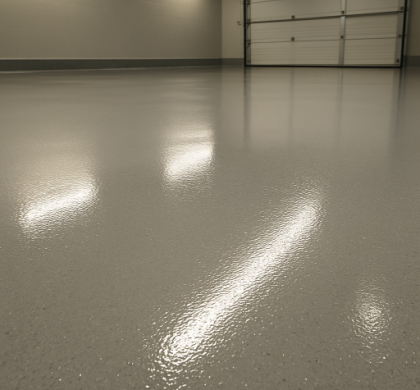
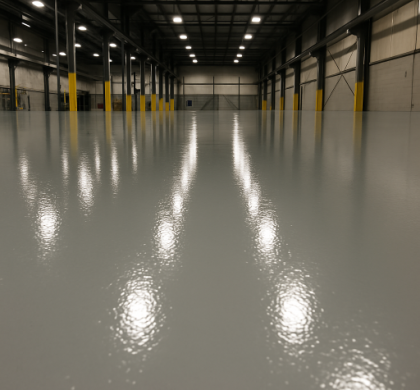
Requirements for modern industrial flooring
Before talking about materials, it is necessary to analyze the specific loads and requirements at the place of use. The most important criteria are
| Requirement category | Specific criteria / details |
|---|---|
| Mechanical load capacity & wear resistance |
|
| Chemical resistance |
|
| Security |
|
| Hygiene & cleanability |
|
| Profitability & sustainability |
|
| Optics |
|
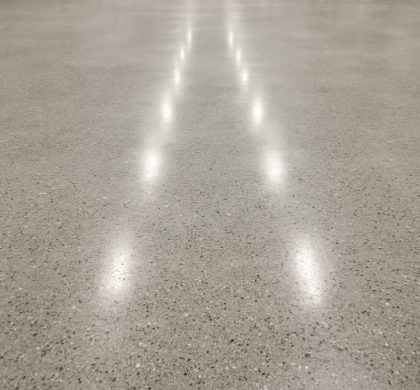
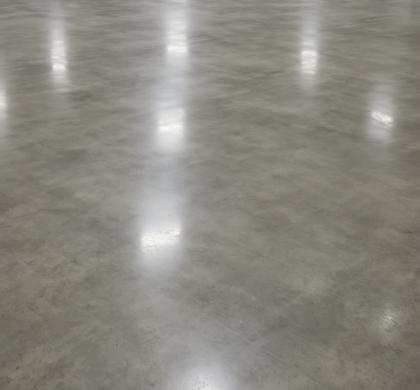
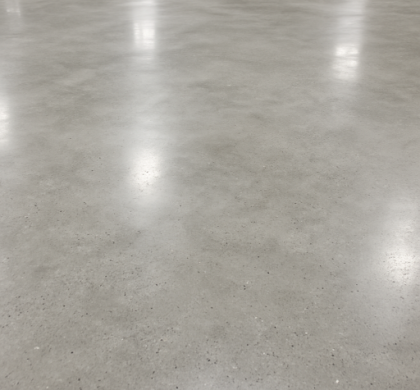
An overview of common industrial flooring systems
There is no one perfect industrial floor, but various systems with specific properties. Here is an overview of the most important ones:
Table: Comparison of common industrial flooring systems
| Material system | Key advantages | Significant restrictions / disadvantages |
| Concrete (tempered) | - High compressive strength - Cost-effective base - Non-combustible | - Dusty & absorbent if untreated - Low chemical/impact resistance - Prone to cracking |
| Epoxy resin (EP) | - Very hard & mechanically resilient - Good chemical resistance - Seamless & hygienic | - Rigid (prone to cracking during movement) - UV-sensitive (without protection) - Longer curing time |
| Polyurethane (PU) | - Flexible & crack-bridging - Good walking comfort & impact resistance - UV-stable options | - Usually softer than EP - Chemical resistance often lower than EP (depending on type) |
| PMMA resin | - Extremely fast curing (even at low temperatures) - Good chemical resistance | - Odor during processing - Higher material costs |
| Cement screed (design) | - Mineral look - High compressive strength - Low jointing possible | - Requires surface protection - Longer drying time |
| Industrial tiles | - Very high abrasion/chemical resistance - Temperature-resistant | - Joints as a weak point - Impact-sensitive (spalling) - Complex installation |
Which industrial floor is right for me?
Selecting the optimum flooring system requires a systematic approach:
- Detailed requirements analysis: Go through the criteria from point 1 and define the specific requirements for your company. What are the must-haves and what are the nice-to-haves?
- Prioritization: Which properties are most important? High chemical resistance in a laboratory takes priority over appearance, while flatness and abrasion resistance are crucial in a logistics center.
- Preselection: Compare your requirements profile with the properties of the various flooring systems (see table above). Which systems are suitable in principle?
- Budget vs. life cycle costs: Consider not only the purchase costs, but also the expected service life, maintenance costs and potential refurbishment costs. A more durable floor is often the more economical solution.
- Obtain specialist advice: Take advantage of the expertise of a specialized company. We can provide you with individual advice based on our experience and an on-site inspection. A substrate test (e.g. adhesive tensile strength, residual moisture using CM-measurement) is essential.
Professional installation: The key to longevity
Even the best floor covering is of little use if it is not laid professionally. The decisive factors are
- Substrate preparation: The substrate must be stable, dry, clean and free of grease and cracks. This often requires extensive measures such as shot blasting, milling or sanding as well as a suitable primer.
- Professional application: Each flooring system has specific application guidelines (temperature, humidity, mixing ratios, layer thicknesses) that must be adhered to exactly.
- Detailed solutions: Connections to walls, supports, drains and expansion joints must be carried out professionally to avoid weak points.
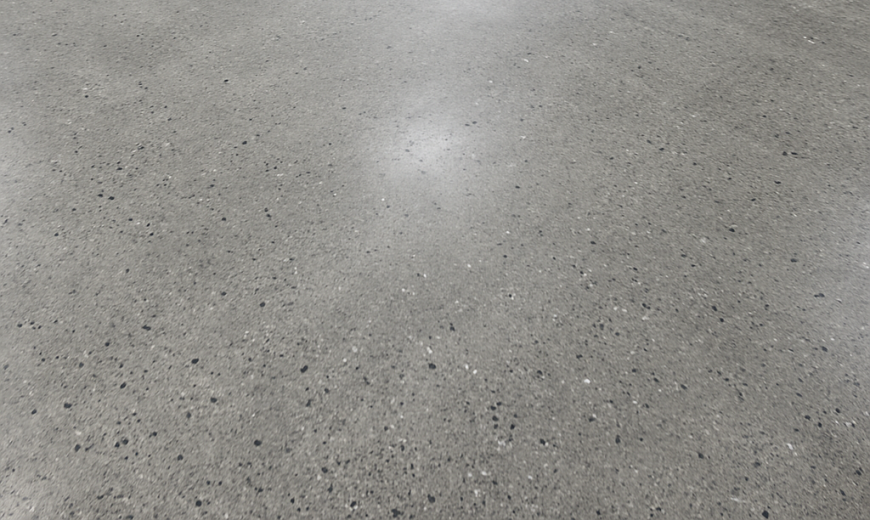
Care and maintenance: ensuring value retention
Even the most robust industrial floor requires care. Regular cleaning tailored to the material maintains its function and appearance. Minor damage should be repaired promptly by a specialist company to prevent consequential damage. We will be happy to draw up an individual cleaning and maintenance plan for you.
Why hire a specialist company?
Laying industrial flooring is complex and requires specialist knowledge. As a specialist company, we offer you:
Comprehensive advice: We help you to find the optimum solution for your specific requirements.
Material expertise: We know the properties and limits of the various systems and only work with high-quality, tested materials from renowned manufacturers.
Expertise in substrate preparation: We know that this is the most important step for a lasting solution.
Trained personnel: Our installation teams are experienced and work to the highest quality standards.
Knowledge of standards and regulations: We take into account all relevant guidelines (e.g. WHG for water protection, ATEX, HACCP, slip resistance classes).
Warranty: We vouch for the quality of our work.
Everything from a single source: from advice to installation and maintenance.
Conclusion: An investment in the future
Industrial flooring is a long-term investment in the efficiency and safety of your business. Careful planning, selection of the right material and professional installation by an experienced specialist company are crucial for success. Take the time to make an informed decision - it pays off.
Get in touch with us!
We will be happy to provide you with a no-obligation consultation and create a customized offer for your project. Let's work together to lay the ideal foundation for your success!
Frequently asked questions (FAQ)
This depends on the type of load. Thick, high-strength synthetic resin screeds/floors (EP, PU) or specially reinforced or coated concrete/cement screed systems are often suitable for extremely high compressive and impact loads. A precise analysis is crucial.
The costs are highly variable and cannot be specified in general terms. They depend heavily on the chosen system (coating, synthetic resin screed, etc.), the required layer thickness and, above all, the condition and necessary preparation of the substrate. Ask for an individual offer.
With the right choice of system, professional installation and appropriate maintenance, a high-quality industrial floor can last for many years or even decades, even under intensive use. The service life is system-specific.
Yes, seamless synthetic resin floors in particular are extremely easy to clean, hygienic and resistant to many cleaning agents. Coated concrete/screed floors also offer a surface that is easy to clean.
Yes, the refurbishment of industrial floors is an important part of our range of services. After a precise analysis of the old condition, we develop a suitable refurbishment concept, which often includes reworking or recoating.
